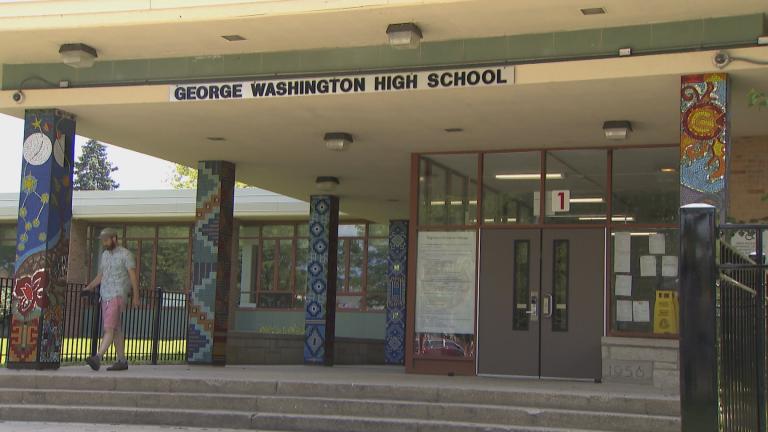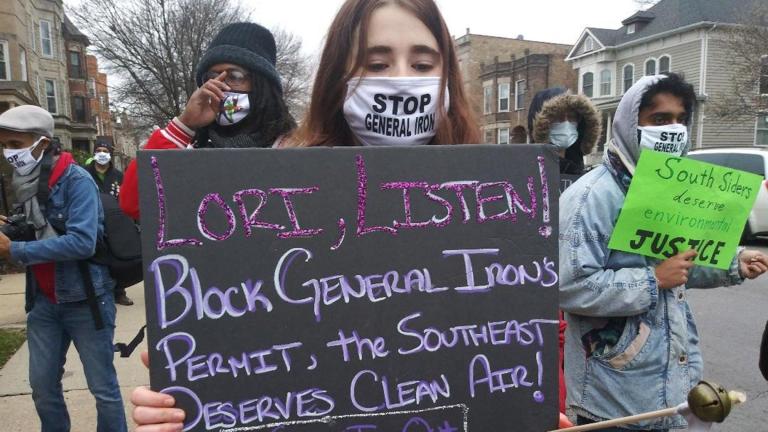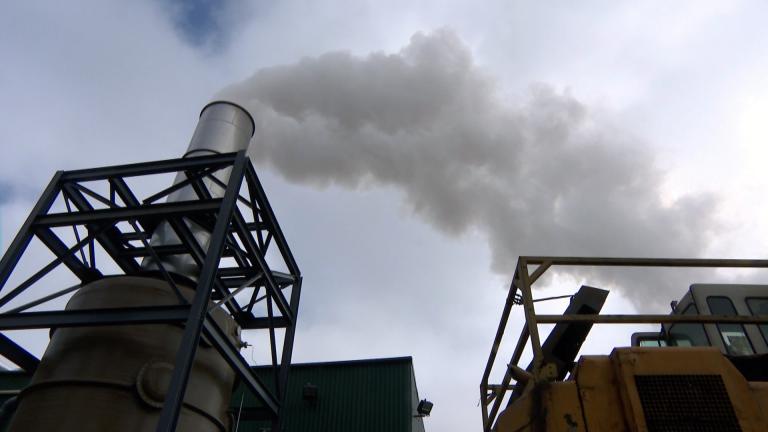For the past week, three protesters have been on a hunger strike, calling on the city to deny Reserve Management Group’s bid to shut down Lincoln Park metal scrapper General Iron and open a facility on the Southeast Side. Earlier this week, a fourth person joined the strike.
Hunger striker Breanna Bertacchi says the Southeast Side is already overburdened by heavy industry, and that the city’s permitting process has not been transparent.
“This community is already overburdened. The community members have used every opportunity to speak out against this, and our legislators aren’t receiving it,” Bertacchi said. “Unfortunately, it has gotten to the point that we feel we have to escalate to this extent. It’s not ideal … but it felt like the next best step to get the attention of the mayor and say we’re not backing down.”
On Wednesday, 10th Ward Ald. Susan Sadlowski Garza put out a statement saying she was “humbled” by the strikers’ dedication and voiced concerns that the Illinois Environmental Protection Agency’s public engagement “did not include Spanish translation despite the heavy Latinx population of my Ward. The IEPA is now being investigated … for possible violations of my constituents’ civil rights,” Garza said. “I strongly request a delay in issuing any permit for RMG's proposed expansion until the federal complaint filed by the U.S. Department of Housing and Urban Development which was referred to the U.S. Department of Justice can be reviewed.”
But a Reserve Management Group spokesperson says the process was transparent. “We regret that these individuals have chosen to engage in conduct that we believe is unwarranted under these circumstances,” Randall Samborn said. “We strongly urge them to not put their own personal health at risk or to encourage others to do so.”
“It’s become clear that the opposition to this project has really little to do, almost nothing to do, with the merits anymore,” Samborn said, citing the new facility’s relative remoteness and numerous pollution control measures. “The former General Iron, which no longer exists, has become demonized in social media and elsewhere, and it’s become a symbol of an environmental justice issue that is very real and should be receiving attention and taken seriously. But the new Southside Recycling facility is not the problem. It is not the toxic polluter that has been portrayed, and unfortunately, the opposition has been built around some myths and misinformation.”
Meleah Geertsma, senior attorney with the Natural Resources Defense Council, says the company has a long history of complaints at its Lincoln Park facility, and that areas with many industrial businesses don’t want jobs that come at the expense of the environment.
“This is about disparities of burdens and benefits across the city – that’s the bigger picture we have to keep in mind,” Geertsma said. “These communities have more pollution and are more vulnerable to that pollution than other communities. Environmental justice communities are saying no more, that they’re no longer going to bear the burden so that other communities can prosper.”
In a statement, a Chicago Department of Public Health spokesperson said the Lightfoot administration cited several actions it’s taken to address resident’s concerns about health and the environment, including hiring a chief sustainability officer and releasing an air quality and health report.
“We also worked with stakeholders - including groups representing the Southeast Side - to create new and more stringent rules for large recycling facilities. And in everything we do around environmental concerns or potential impacts, we start with community engagement,” the statement said. “Our efforts to create a more environmentally just and responsive city is about more than one facility - it is about advancing policies that truly promote the health and wellbeing of people who live near industrial areas. The City will continue to work to address residents’ concerns, both for RMG/Southside Recycling and on these broader policy issues.”






